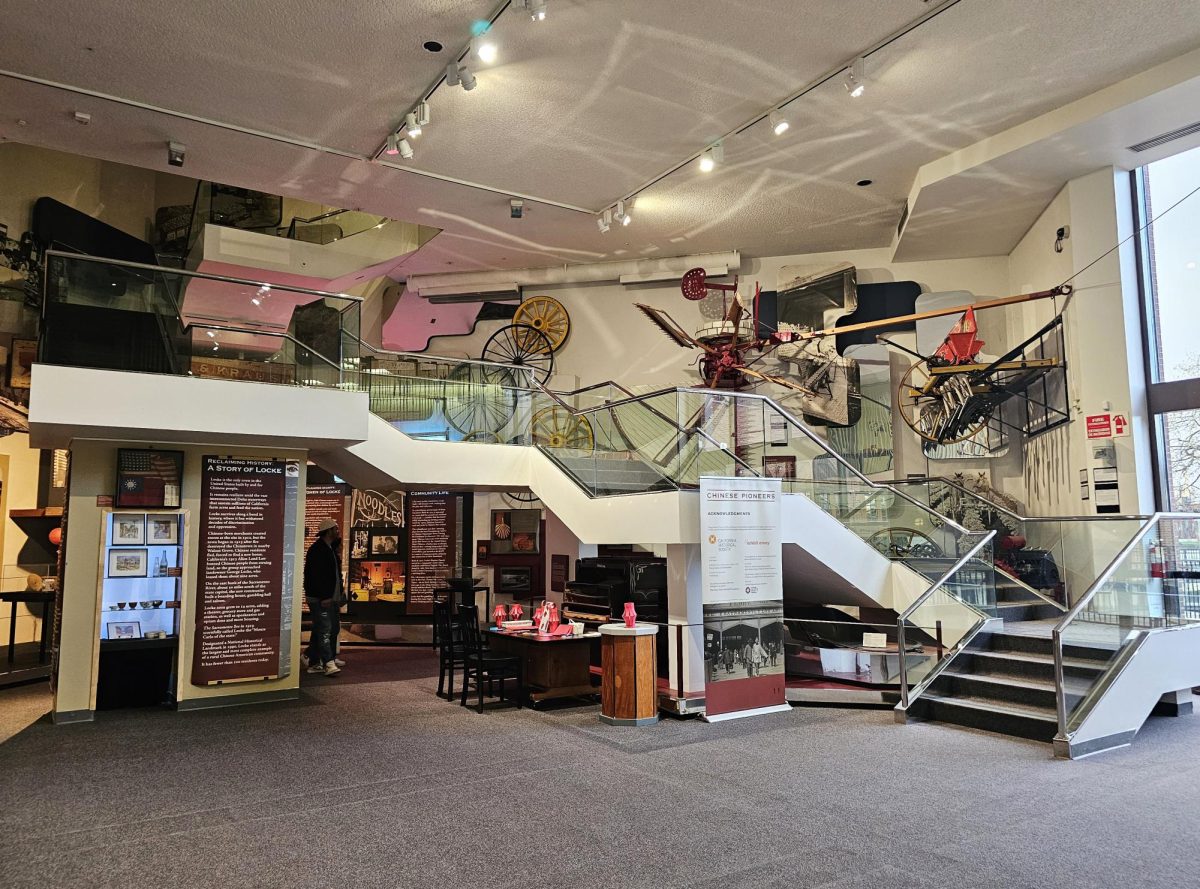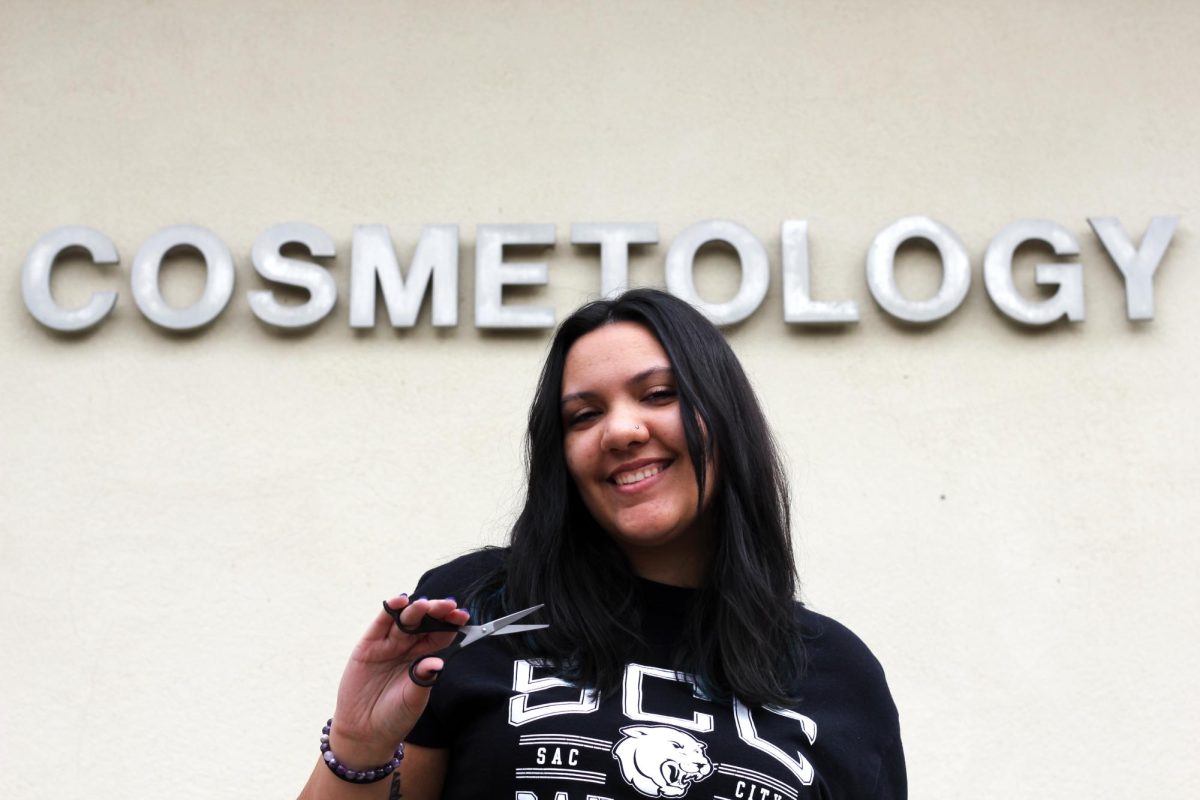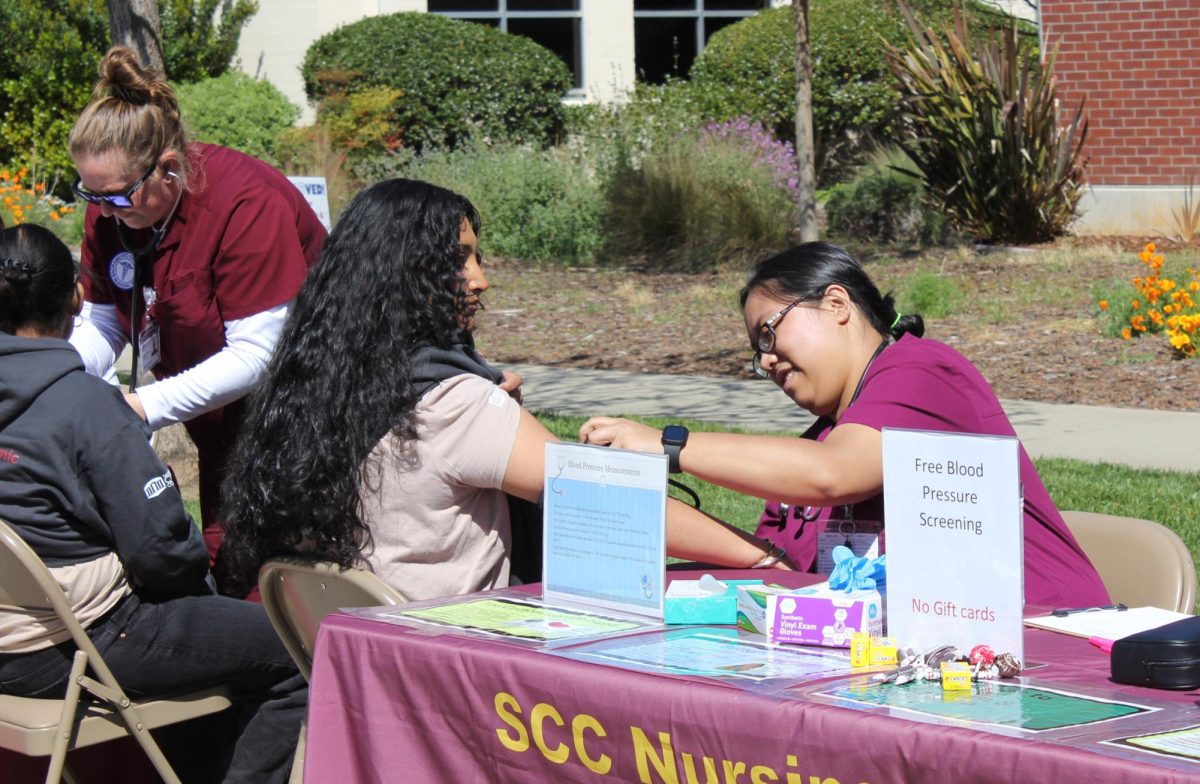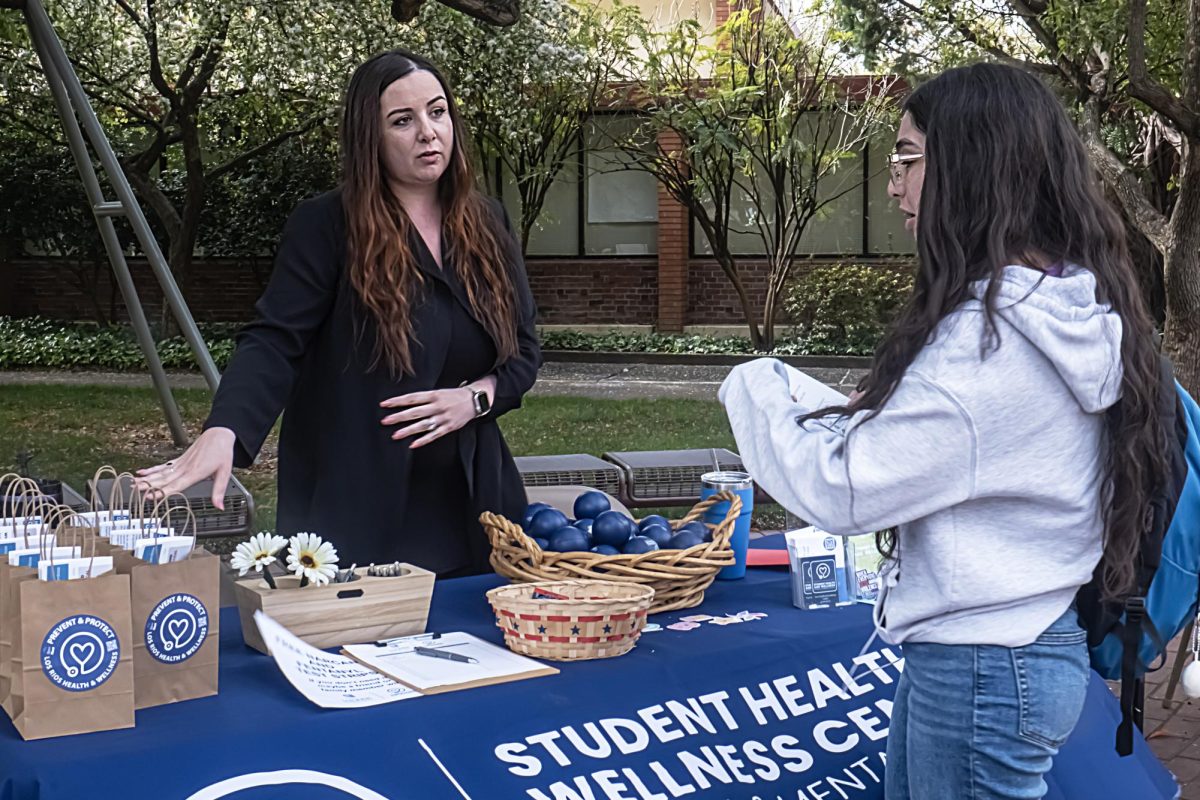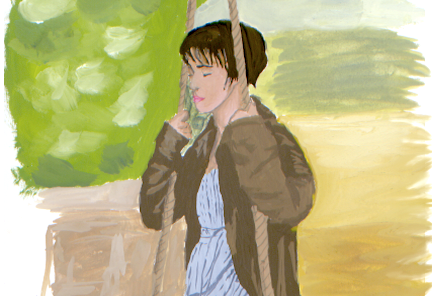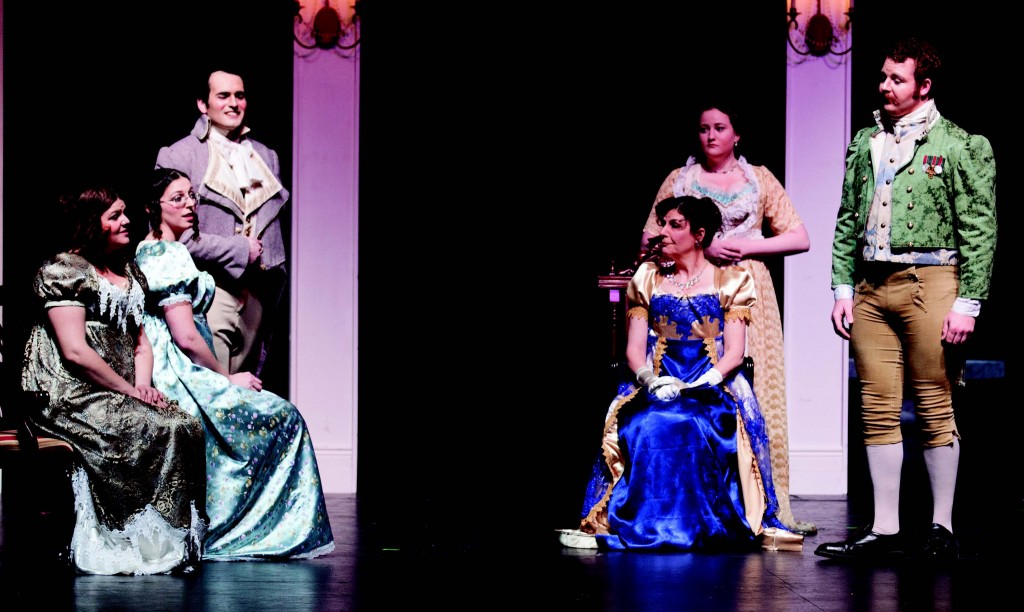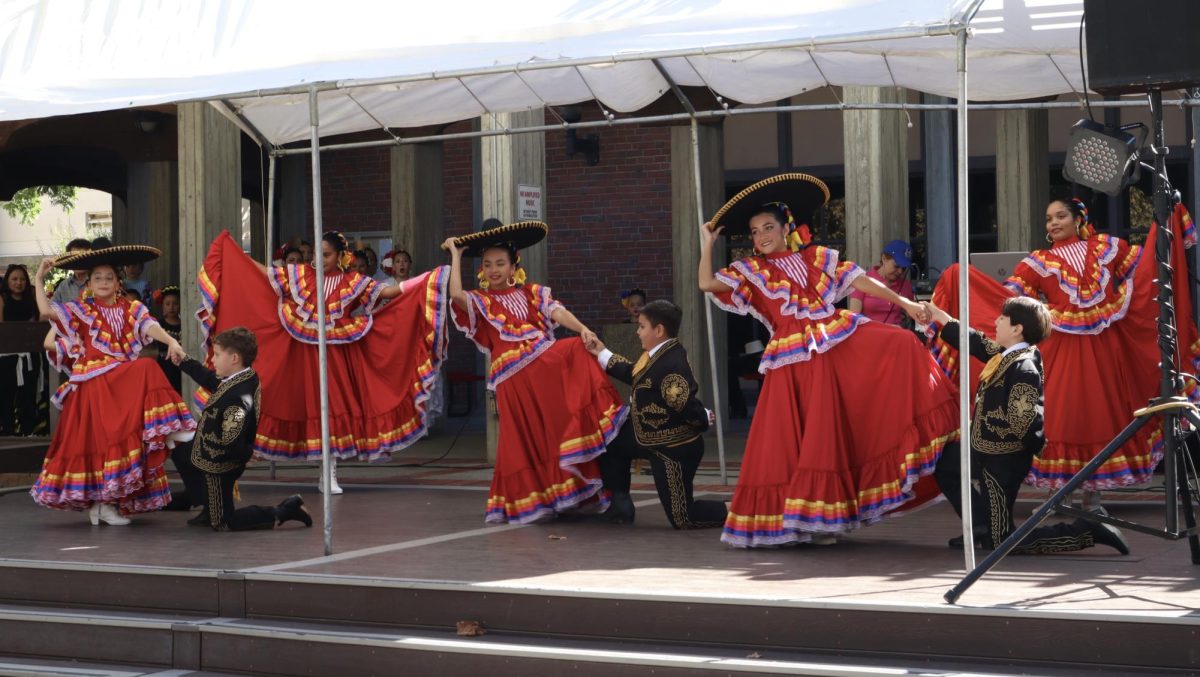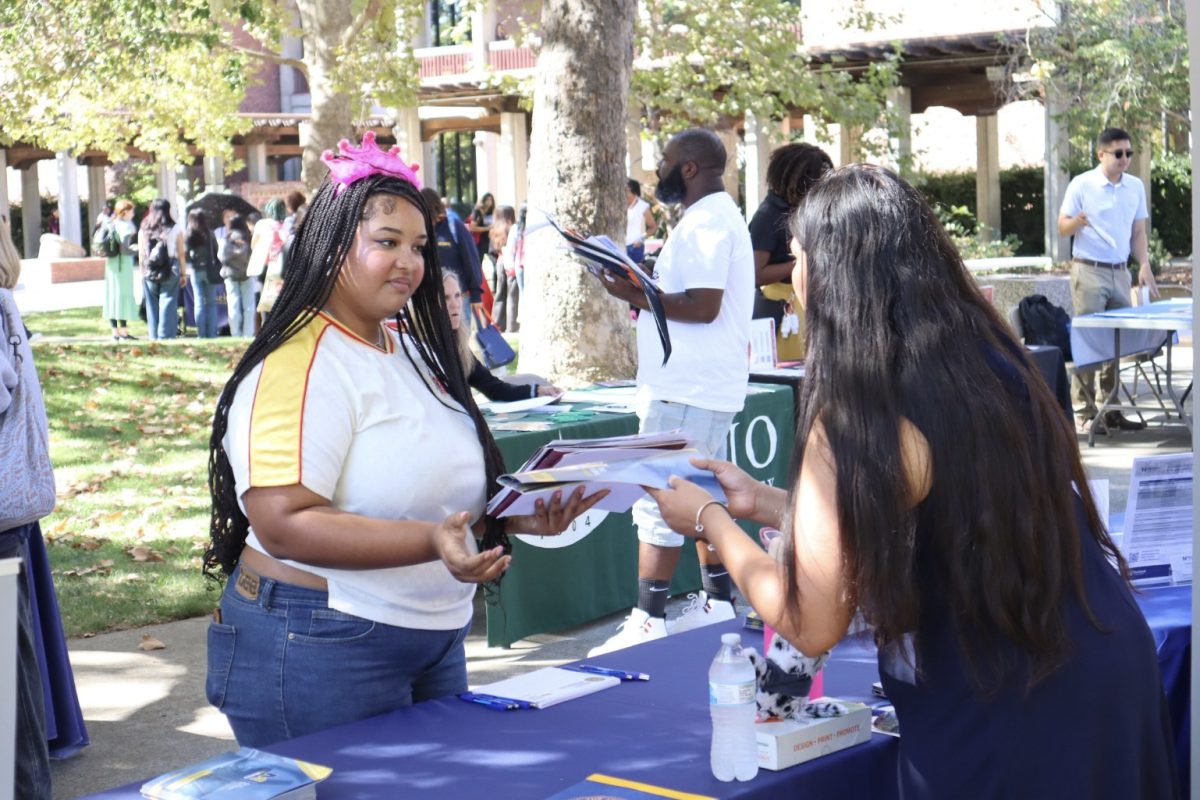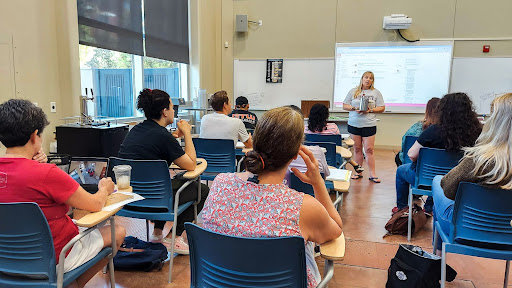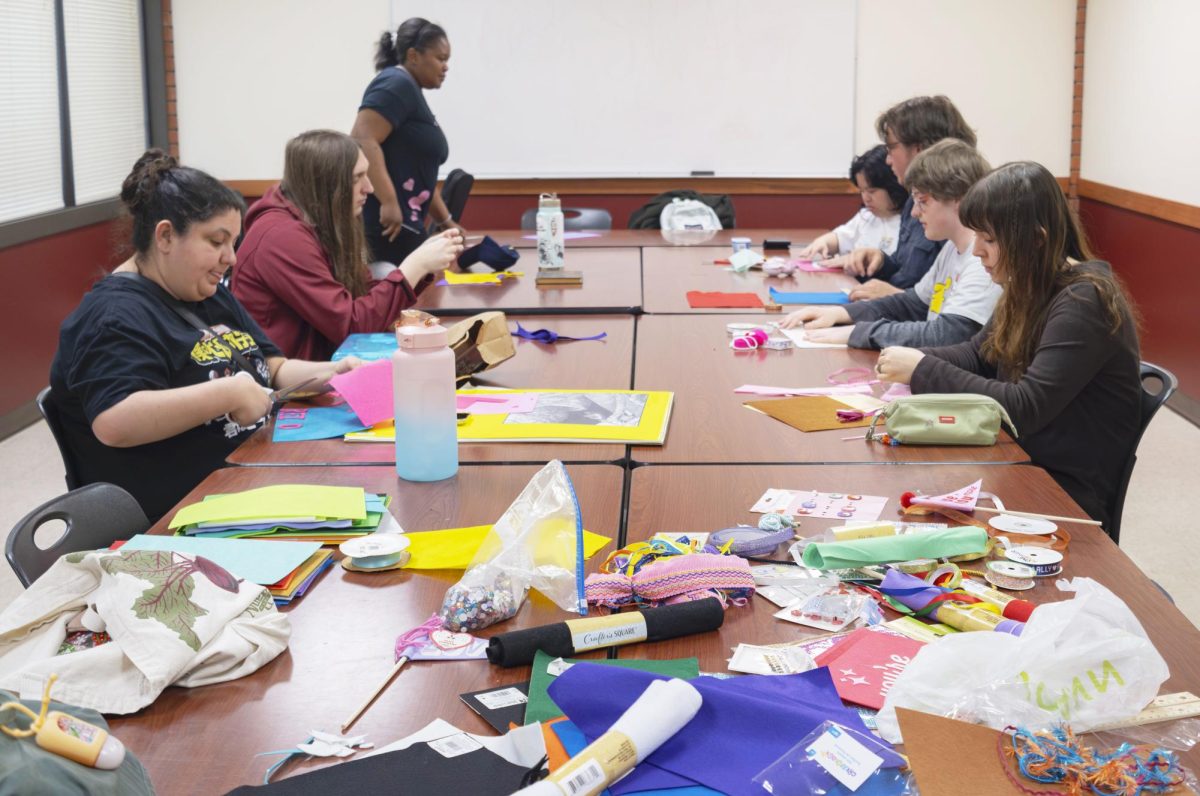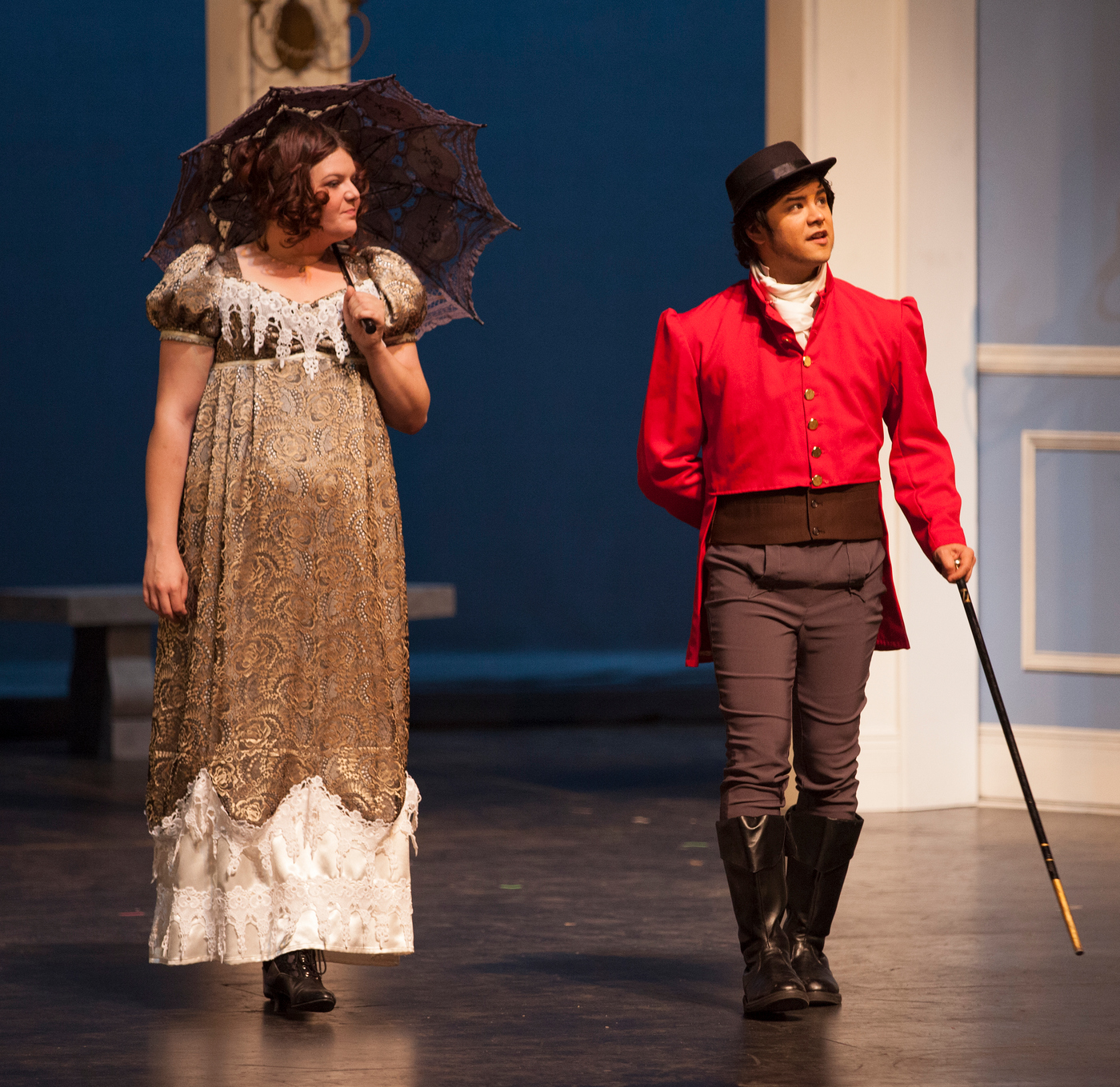
Though “Pride and Prejudice” is set in a time and place long ago and far away, LoriAnne DeLappe-Grondin’s production of the 2009 dramatic adaptation of the 1813 novel is handled with Northern California sensibility.
The patriarch, Mr. Bennett, played by Dennis Redpath, is not the withered old gentleman of the novel. Instead, he is a hippie who has long since passed his prime. He has grown tired of the antics of Mrs. Bennett, portrayed by the wonderfully outrageous Cheantell Munn.
This Mrs. Bennett is still graceless and unlikable, but with the slightest powdering of a rococo personality that brings refreshing modernity to the story. Munn’s Mrs. Bennett is a pageant mom who has dedicated her middle age to presenting her daughters to anyone who could potentially propose.
The eldest daughter, Jane (Shelby Saumeir), has caught the eye of Charles Bingley (Alexander Quinonez), a nouveau-riche gentleman who recently took ownership of the neighboring Netherfield Park.
In my reading of the novel and viewing of its various film adaptations, it never seemed that Bingley was a braggadocio. Quinonez’ portrayal of him as such is cartoonish, yet natural for the character. Bingley’s demeanor is comparable to a Silicon Valley millionaire with the same sense — or rather, lack — of class and original wit.
Yet Elizabeth Bennett (Denise Ivy) is aware of both the former and the latter, which is interesting considering that her beau is Mr. Darcy, who is played to near-refinement by Andrew Fridae.
Like the novel’s Darcy, Fridae is broodily handsome and delightfully anti-social. His demeanor throughout the performance was consistent, and it seemed that he portrayed Darcy’s awkward doting as the best show of emotion he has. Perhaps that is why Lizzie is struck by him. Opposites attract.
This isn’t to say that the play is a modern adaptation; the locations and pageantry are still true to the Regency period in England or “Austenland.” But there is a distinctly 21st century flavor to the play compared to other adaptations.
There are certain nuances that have to be present for the feeling of Austenland to come off as authentic.
Costume designer Nicole Sivell meets this requirement while also enhancing the chosen personalities of the characters.
Mrs. Bennett is wrapped in outlandish paisley patterns that only somebody who’s trying too hard would wear. Then there’s Mr. Bennett, whose clothes are a little too big for him compared to the perfectly tailored outfits of Bingley and Darcy. In both Bennetts’ costumes, an artificial glare radiates from the fabric, indicating low quality.
There is also a bit of comedy in the costuming of Colonel Fitzwilliam (Matthew Matson), who embodies the stereotype of British pompousness.
He’s wearing civilian clothing, yet he still wears his awards on his breast. My guess is that these details are intentional character identifications.
Austen’s prestigious body of work — which includes “Pride and Prejudice” — is based on her experience with the landed gentry. There is nothing unique about this point of view, as is evidenced by contemporary authors such as the Brontë sisters, Charlotte, Emily and Anne, and by Sir Walter Scott, who also hobnobbed with the same social circles.
What set Austen apart from the rest of these authors was her personal feeling about how “silly” young people could be regarding marriage. She was not being literal when she penned the first sentence of “Pride and Prejudice’’: “It is a truth universally acknowledged that a single man in possession of a good fortune must be in want of a wife.”
It was meant as a burn, a maledicta incognita buried deep within her flowery prose.
City Theatre’s “Pride and Prejudice” is a treat for the senses. DeLappe-Grondin and the rest of the production truly embody Austen’s material while also staying true to their own Northern California selves. Imagine what would result if they got together and adapted the characters to the modern world. Wouldn’t that be cool?
“Pride and Prejudice” runs Fridays, Saturdays and Sundays March 4–20 with an ASL-interpreted performance March 6. Ticket prices range between $10 and $18, depending on time of performance. Tickets can be purchased at http://www.citytheatre. net.









